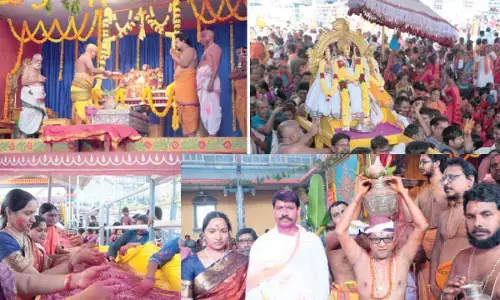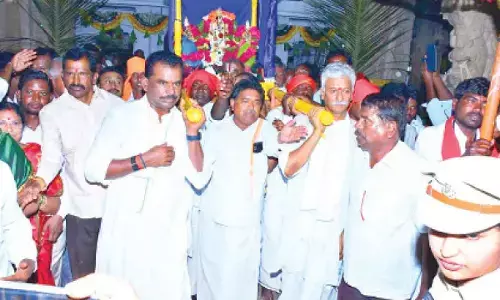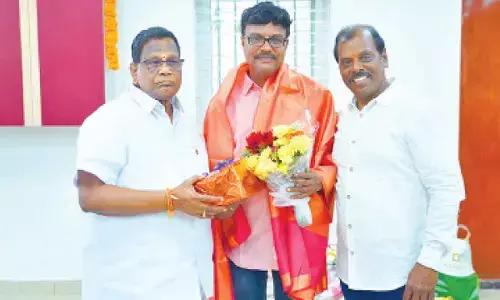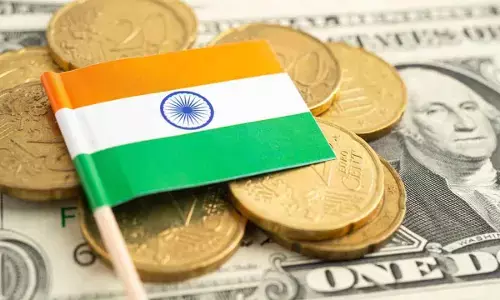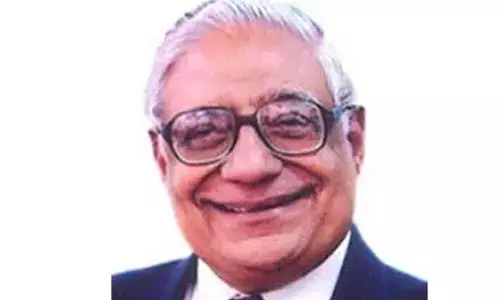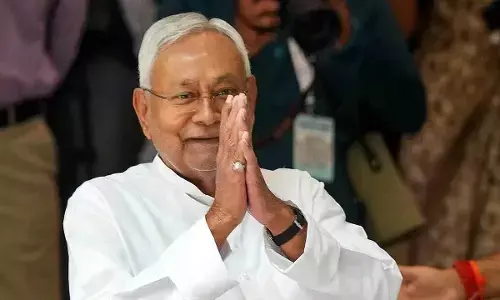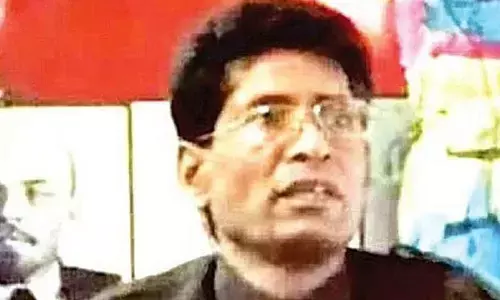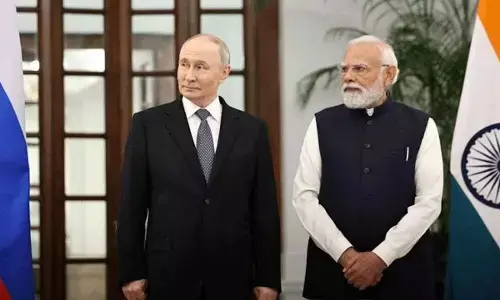Water row between Andhra Pradesh, TS likely to get further complicated
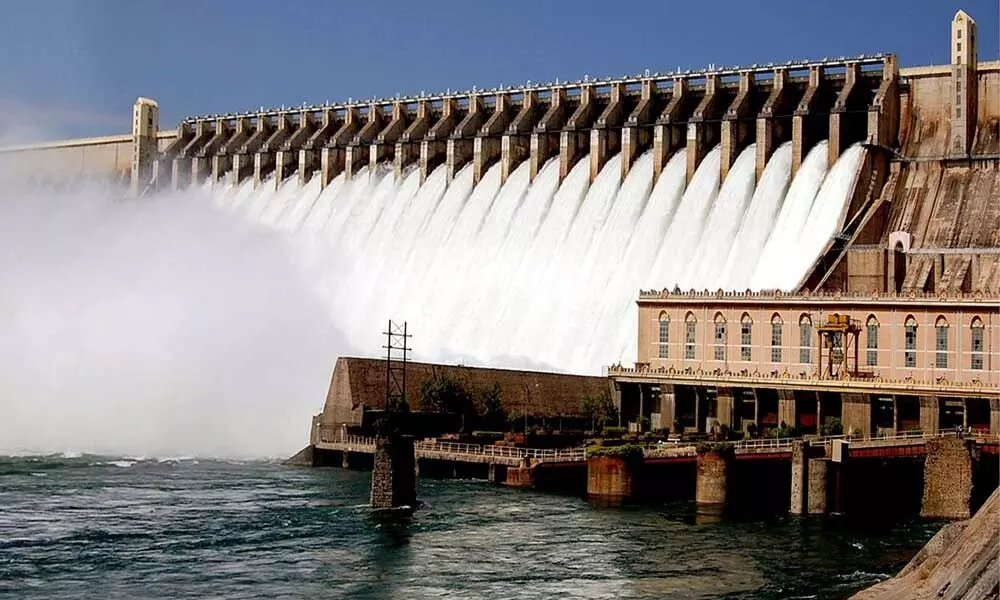
Water row between Andhra Pradesh, TS likely to get further complicated
- Project-wise supply for irrigation and drinking water needs and also for the hydel power generation is not easy to handle
- Confrontation can also arise due to the unapproved projects which the two states have already started
Amaravati: In two months exactly from now, Andhra Pradesh and Telangana states will lose powers over the control of Godavari and Krishna Waters thanks to the gazette notification issued by the Centre recently. The respective river boards will have control over the operations here.
The gazette notification issued on the intervening night of July 15 and 16 this year, states that the boards will take over control of 35 projects in Krishna Basin, 71 in Godavari Basin from October 14. The notification has been long pending as it was a part of the provisions of the AP Reorganisation Act. This development effectively transfers to the boards the power to operate the projects in the two river basins alongside handing over the hydel power generation too.
The two Telugu states which could not resolve their disputes solely due to political reasons will have plenty of reasons for regretting in future. As per the bifurcation Act, the gazette notification was imminent. But, it has not been necessary for the two states to allow rancour to build to such levels. The confrontational voices, strangely, are as intense and as vehement as they were prior to the bifurcation of the State itself. If these two States were to resolve their disputes amicably, then the work of the Boards too would have become easier in future.
But the two states had embarked on a wordy dual over every structure, every reservoir and over every power generation plan. From the local courts to the Supreme Court to the National Green Tribunal, the two have explored all options to prevent the other from going ahead with its plans.
The Jal Shakti ministry (which issued the notification) is also aware, on its part, that the notification and the subsequent transfer of controls is not going to resolve the disputes once for all. The haphazardness of the resolution process of the dispute itself will lead to greater animosity between the two (if only at the political level). The problem inherent to the dispute is the fact that there is no holistic approach to the issue of river water disputes. The gazette notification only talks about resolving the disputes between the two states but not to resolve the disputes spread across the basins of the two rivers.
Telangana has already opposed this 'taking over' of project without any clarity on the state's share of waters. Project-wise supply for irrigation and drinking water needs and also for the hydel power generation at these projects is not that easily handled. As there is no specific allocation project-wise in its entirety, it will only lead to greater confrontation with the Centre also involved, experts aver.
The gazette notification divides the operations in three parts with Schedule-1 including head works, parts of canal network and components and transmission lines over which the KRMB will have jurisdiction.
Schedule-2 specifies the head works (barrages, dams, reservoirs, regulating structures) and parts of canal network or components and transmission lines which the KRMB operates.
Schedule-3 mentions works which the States will be asked to execute on behalf of the KRMB.
The confrontation could also arise due to the unapproved projects which these states had started. For example, on the Krishna basin, AP projects like Telugu Ganga, Veligonda, Handri-Niva, Muchumarri, Galeru-Nagari, Siddapuram and Guru Raghavendra exist.
Srisailam Left Bank Canal, Kalwakurthy, Nettempadu, Palamuru-Rangareddy, Dindi, AMRP, Bhakta Ramadasu and Thummilla; joint project of Muniyeru fall under Telangana.
Likewise, Godavari basin has (as AP projects) Pattiseema, Purushottapatnam, Chintalapudi and Venkatanagaram and Telangana has Kanthanapally, Kaleshwaram (augmentation), Pranahitha, Gudem, Mukteshwar, Sitarama Ramappa-Pakhal, Tupakulagudem, Modikuntavagu, Choutpally Hanumanth Reddy and Kandukurti.
There is no way the Centre can adjudicate to the satisfaction of both in all these. Unless wise counsels prevail, the two neighbouring states will be nursing their wounds for a long time to come.


